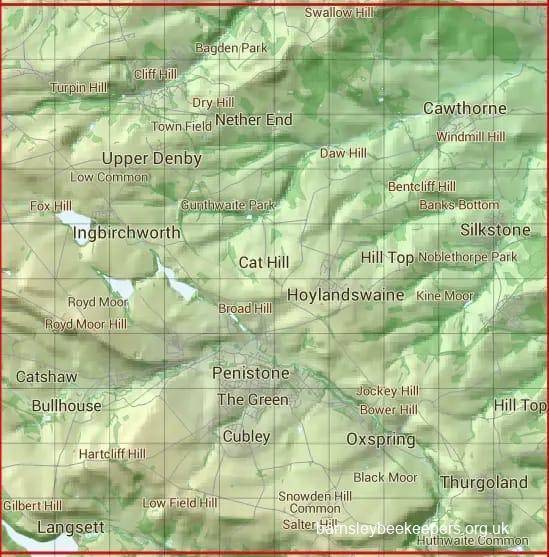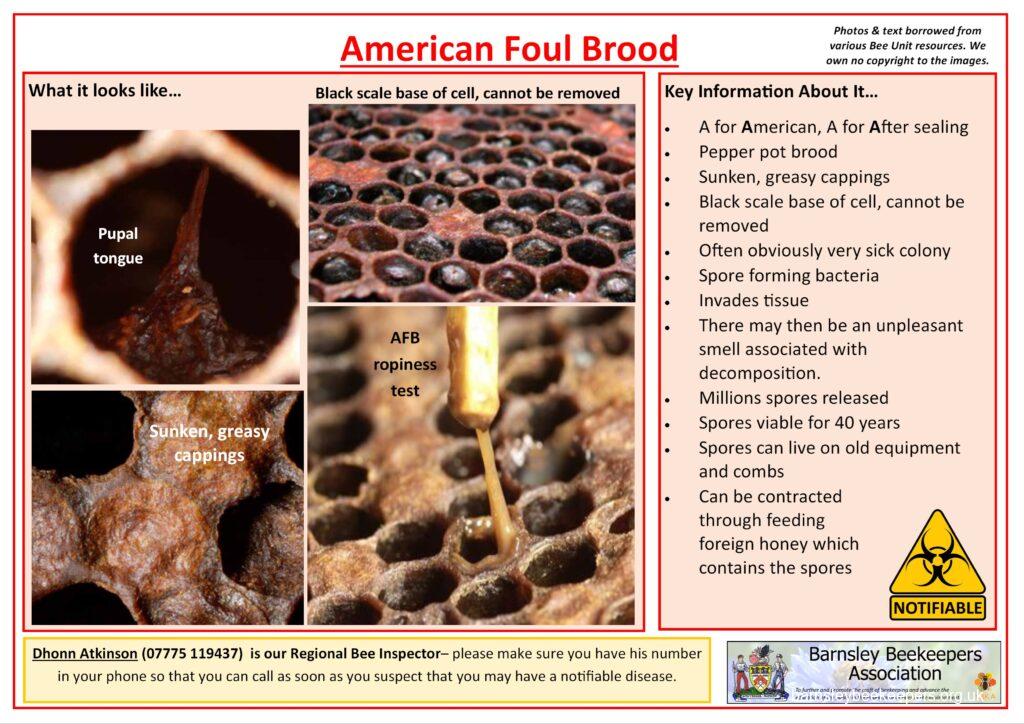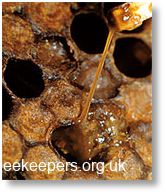16/05/24
We have received a warning from the National Bee Unit (NBU) regarding a confirmed case of American Foulbrood (AFB) detected within the 10 km square SE20. This area includes Langsett, extending to Denby Dale in the north and east to Silkstone and Thurgoland, with Penistone being centrally located. As this outbreak could potentially impact several of our members, it is important to take immediate action.

Actions Required:
- Thorough Inspections:
- Conduct comprehensive disease inspections of your hives.
- Report any concerns immediately to the NBU. The Regional Inspector is: Dhonn Atkinson Mobile No: 07775 119437
- Refer to the Foulbrood leaflet on BeeBase for detailed information on identifying the disease. If you need advice, feel free to send photos, though a visual inspection is more effective. [BeeBase Foulbrood Leaflet]
- BeeBase Registration:
- Ensure your apiaries are registered on BeeBase (the National Bee Unit website). The NBU needs to know the locations of apiaries to conduct inspections within 3 km of the outbreak. Unregistered apiaries could be at risk of infection and could potentially spread the disease. [Register on BeeBase]
Apiary Hygiene Practices:
- Cleaning Tools:
- Maintain a bucket with strong washing soda for hive tools. Adding a squirt of bleach can help keep the solution fresh. Wash gloves and hive tools between each hive inspection.
- Glove Use:
- Use a new pair of gloves for each apiary inspection. (Ivor uses Ansell TouchNTough long length nitrile (300mm))
- Super Management:
- Consider numbering supers for each hive and avoid transferring bees or equipment between apiaries until you are confident they are clean.
- Notify NBU:
- If visited by the NBU, inform them of any nearby apiaries they may not be aware of.
Reminder and Support:
Please remember that there is a beekeeper at the center of this alert. Refrain from speculating about who it might be. Being a beekeeper includes the risk of colonies becoming ill, and an AFB outbreak is not necessarily the fault of the beekeeper involved. We must allow the NBU to carry out their job effectively while increasing our own apiary hygiene practices to control the spread of the disease. If you notice any suspicious colonies, please check them with a bee inspector. Ivor has kindly offered his advice and assistance to anyone in need.
Our thoughts go out to the beekeeper now facing the destruction of their bees. Let’s support one another during this challenging time and work together to protect our bees.
Sincerely,
Richard Senior
Chairman
Barnsley Beekeeping Association


